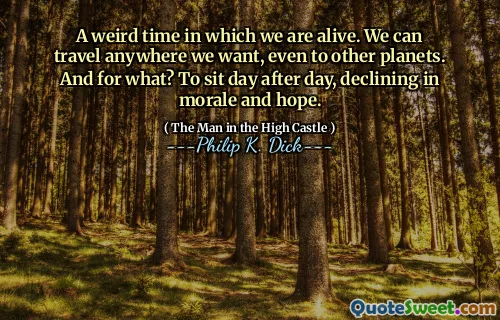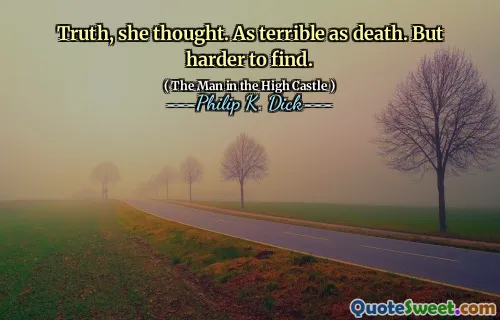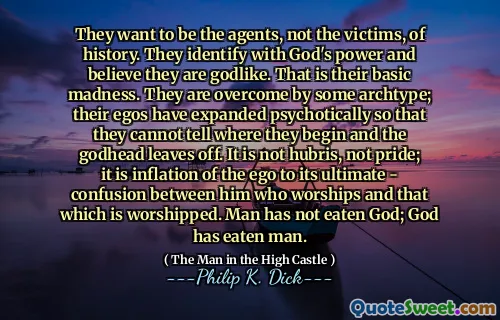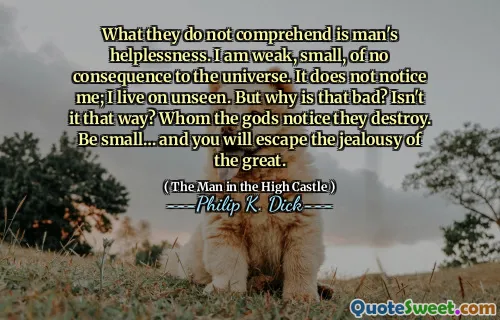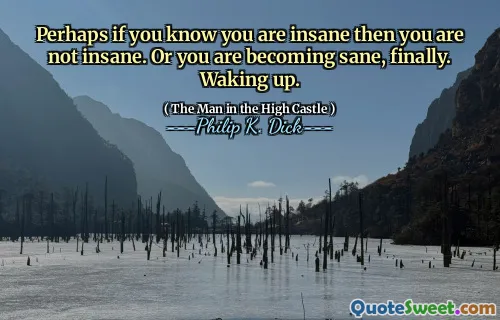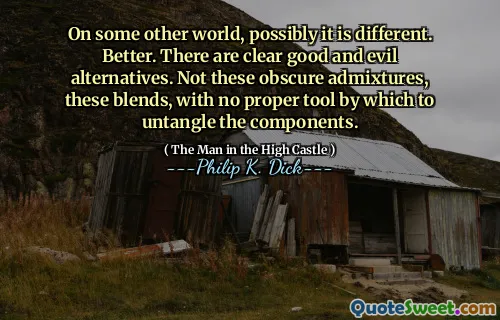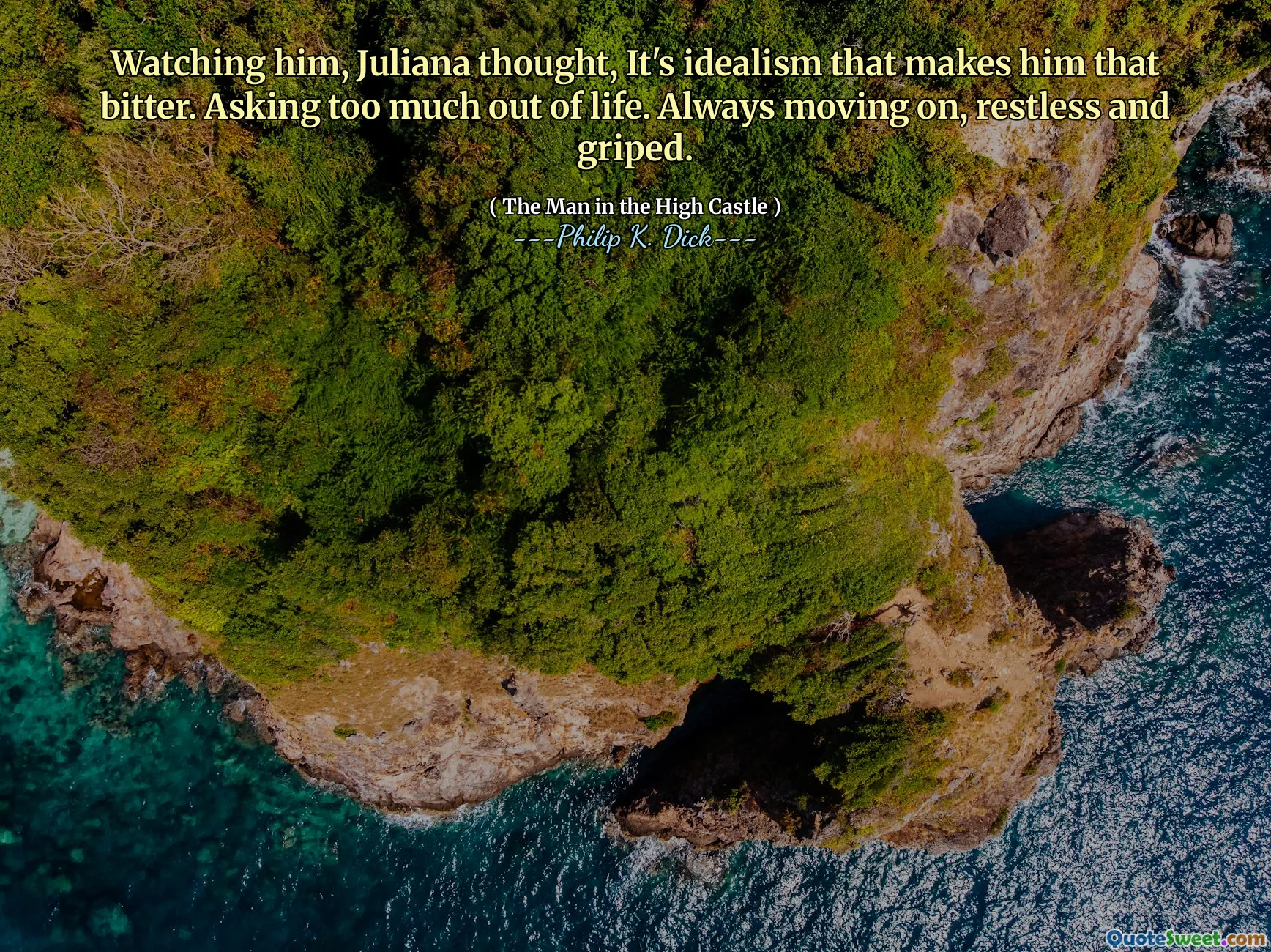
Watching him, Juliana thought, It's idealism that makes him that bitter. Asking too much out of life. Always moving on, restless and griped.
In Philip K. Dick's "The Man in the High Castle," Juliana observes the tension within a character driven by an intense sense of idealism. She perceives this idealism as the root of his bitterness, suggesting that his high expectations from life lead to a constant state of dissatisfaction. This emotional turmoil manifests as a restlessness that keeps him perpetually on the move, unable to settle or find peace.
Juliana's reflections highlight the struggles faced by those who hold onto ideals that seem unattainable in a flawed world. This conflict between aspiration and reality breeds a sense of discontent, suggesting that the pursuit of perfection can often hinder one's ability to find happiness in the present. The characters' struggles serve as a commentary on the challenges of balancing hope and reality in an imperfect society.
